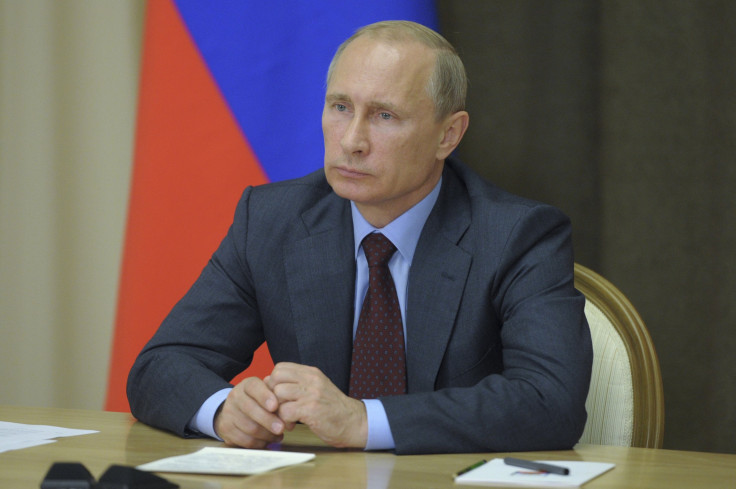Russian Amphibious Assault Ships Travel To Arctic Military Base For Defense Exercises

Russia continued its military buildup in the Arctic Tuesday by sending a group of Northern Fleet warships and marines to the region for exercises, Russian state media reported. The troops are to practice the defense of the Russian Arctic coast.
The Northern Fleet's Georgy Pobedonosets and Kondopoga, large amphibious assault ships, reached the New Siberian archipelago Monday and the marines landed on the Kotelny Island military base Tuesday. More than 230 servicemen participated in the exercise.
"The exercise in amphibious landing onto rough terrain started with the support of shipborne aircraft. Two Kamov Ka-27 shipborne helicopters took off from the large antisubmarine ship Severomorsk to transport advance parties to the western shore of Kotelny Island," the Russian press office said.
Russia has taken an increasingly aggressive stance in the Arctic Ocean in recent months. In August, it formally staked a claim to the region, including the North Pole, the New York Times reported. Russia made a similar claim in 2002, but the United Nations rejected it for lack of scientific support. Under the 1982 U.N. Convention on the Law of the Sea, a nation may claim an “exclusive economic zone” within 200 nautical miles from its recognized maritime borders.
Russia has also boosted its military presence in the region in recent months, with surface-to-air missiles for use in temperatures below -58 degrees Fahrenheit and resupply ships with reinforced hulls that move through floating ice. “The conditions are certainly harsh, but we are coping. We have housing and equipment, so we’ll survive just fine,” Yuri Popov, a Russian military engineer, told reporters last year.
Russia already has the longest Arctic border in the world and has oil drilling projects in the Kara Sea. Environmental groups have raised concerns about Russia's drilling in the region.
“The melting of the Arctic ice is uncovering a new and vulnerable sea, but countries like Russia and Norway want to turn it into the next Saudi Arabia. Unless we act together, this region could be dotted with oil wells and fishing fleets within our lifetimes," said Vladimir Chuprov, an Arctic campaigner for Greenpeace, in a statement last month.
© Copyright IBTimes 2024. All rights reserved.












